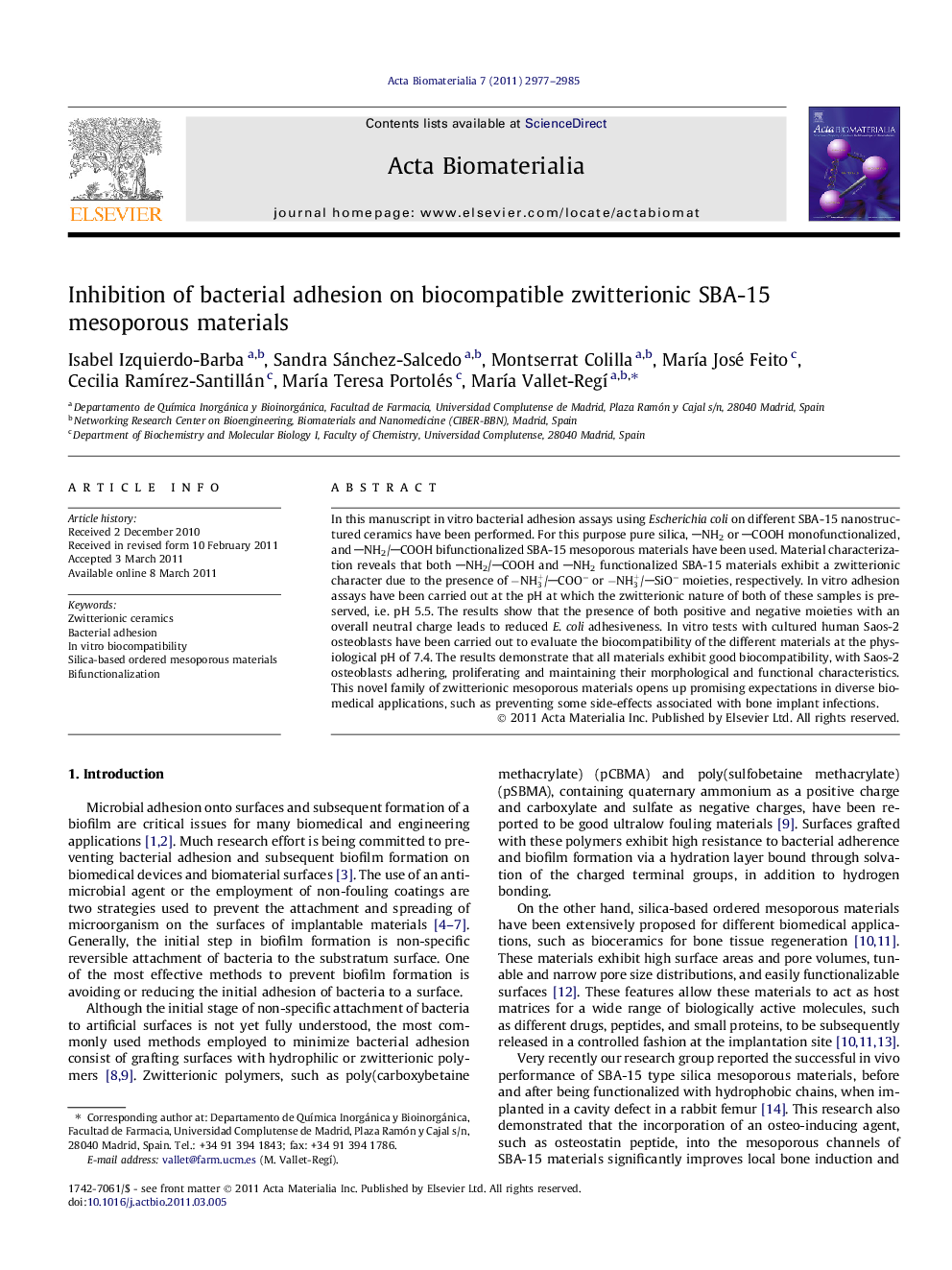| Article ID | Journal | Published Year | Pages | File Type |
|---|---|---|---|---|
| 1164 | Acta Biomaterialia | 2011 | 9 Pages |
In this manuscript in vitro bacterial adhesion assays using Escherichiacoli on different SBA-15 nanostructured ceramics have been performed. For this purpose pure silica, NH2 or COOH monofunctionalized, and NH2/COOH bifunctionalized SBA-15 mesoporous materials have been used. Material characterization reveals that both NH2/COOH and NH2 functionalized SBA-15 materials exhibit a zwitterionic character due to the presence of -NH3+/COO− or -NH3+/SiO− moieties, respectively. In vitro adhesion assays have been carried out at the pH at which the zwitterionic nature of both of these samples is preserved, i.e. pH 5.5. The results show that the presence of both positive and negative moieties with an overall neutral charge leads to reduced E. coli adhesiveness. In vitro tests with cultured human Saos-2 osteoblasts have been carried out to evaluate the biocompatibility of the different materials at the physiological pH of 7.4. The results demonstrate that all materials exhibit good biocompatibility, with Saos-2 osteoblasts adhering, proliferating and maintaining their morphological and functional characteristics. This novel family of zwitterionic mesoporous materials opens up promising expectations in diverse biomedical applications, such as preventing some side-effects associated with bone implant infections.
